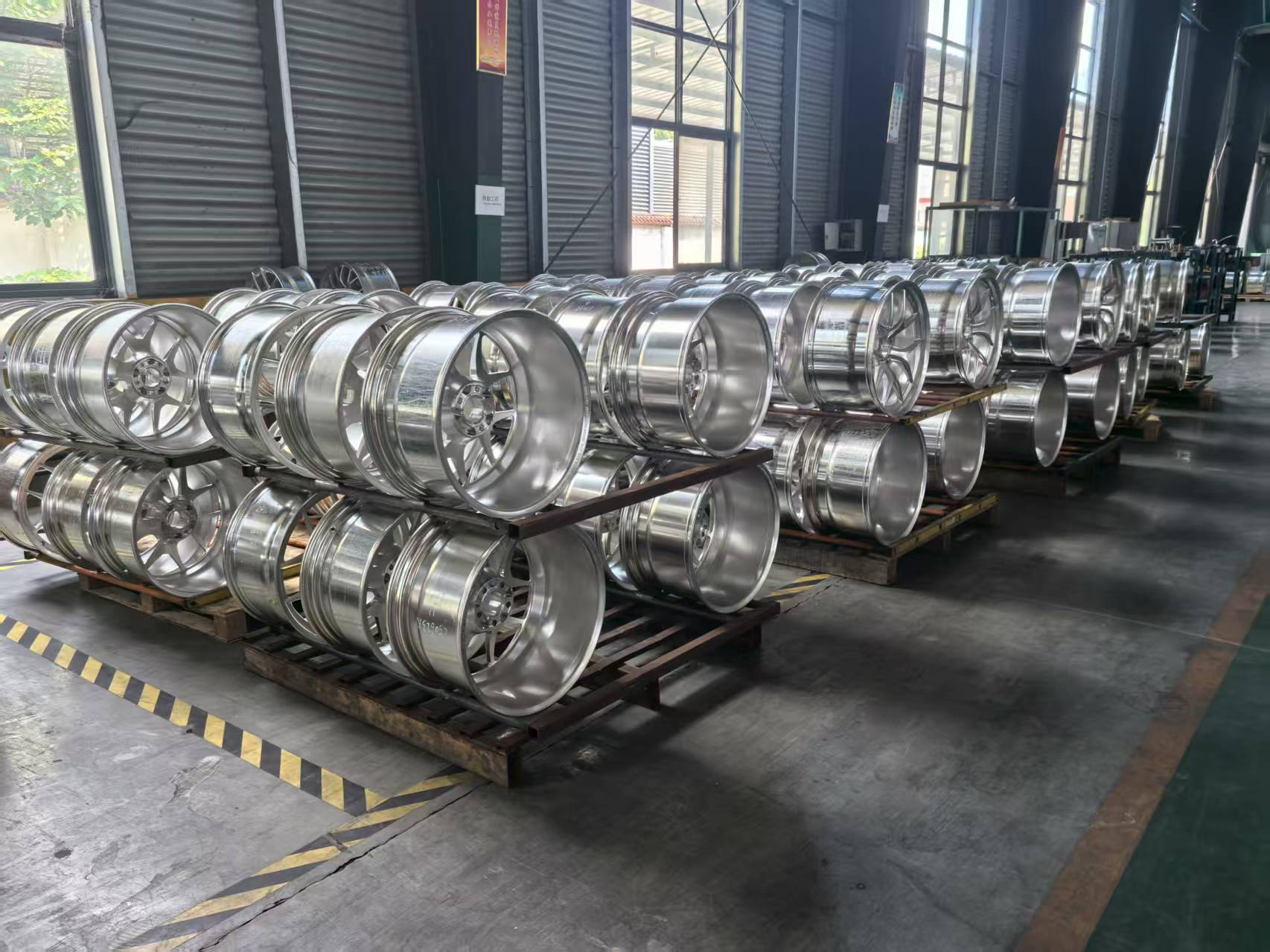Key takeaways
-
Forged magnesium wheels follow the same core stages used across the industry: press forging, heat treatment, and Computer Numerical Control (CNC) machining. But MP Wheels' use of a 10,000-ton press, specialized magnesium alloys, and precision finishing takes those standard steps to a higher level of strength, lightness, and consistency.
-
Compared with cast wheels, forged magnesium wheels provide superior durability, reduced weight, and greater safety for both track and street use.
-
Cutting unsprung and rotational mass supports quicker acceleration, sharper handling, and more responsive performance behind the wheel.
-
Options for size, offset, and finish allow drivers to order custom forged wheels built specifically for their car and driving goals.
-
MP Wheels manufactures magnesium wheels for sale worldwide, crafted to the highest standards for performance enthusiasts.
In the high-stakes world of performance driving, wheels aren’t just cosmetic; they’re mission-critical. For decades, racing teams and tuners have trusted forged magnesium wheels to cut weight, deliver quicker acceleration, and sharpen handling on both track and street.
But why magnesium? Because it’s extremely light. Magnesium alloys can reduce wheel mass by up to 32% compared with aluminum alternatives. This lighter mass translates directly into lower rotational inertia, letting the car spin, brake, and change direction more responsively.
At MP Wheels, we go beyond the standard forging process. Every set of forged magnesium racing wheels undergoes a three-stage journey—10,000-ton press forging, precision-controlled heat treatment, and CNC finishing—ensuring each wheel is lightweight, strong, consistent, and refined down to the last spoke.
Let’s peel back the layers and see how raw magnesium alloy transforms into the ultimate performance wheel, one engineered to deliver speed, control, and confidence.
Step 1: Forging process with a 10,000-ton press
The journey of a forged wheel begins with a solid billet of magnesium alloy. Unlike cast wheels, where molten metal is poured into a mold, forging applies immense pressure to reshape the billet.
-
The press: MP’s 10,000-ton press exerts enough force to compress the magnesium alloy into a dense, refined structure.
-
Why it matters: This forging process eliminates voids and weak spots that often appear in cast magnesium wheels. The result is a much stronger and more reliable wheel.
-
Performance benefit: Forged magnesium wheels are stronger and lighter, reducing unsprung mass and rotational mass, two critical factors in how a car handles and accelerates.
Think of forging as compacting every grain of the alloy into perfect alignment. This engineered density is what gives forged wheels their reputation for durability and safety, especially in racing applications where margins for error are slim.
Step 2: Heat treatment for exceptional strength
Once forged, the wheel blank undergoes a carefully controlled heat treatment.
-
Process: Heating and cooling cycles stabilize the magnesium’s grain structure.
-
Outcome: The wheel achieves exceptional strength, corrosion resistance, and toughness without adding unnecessary weight.
-
Application: This step ensures the wheels can withstand the repeated stress of high-performance driving, whether cornering at speed on a track or handling potholes on the street.
Heat treatment gives forged magnesium alloy a balance of strength and lightness that sets it apart from forged aluminum, while ensuring dependable performance for years.
Step 3: CNC machining and finishing
The final form of a forged magnesium wheel is achieved through precision machining.
-
CNC process: CNC machines sculpt the forged blank into the final wheel design, cutting intricate spoke patterns, offsets, and rim widths.
-
Customization options: Customers can choose custom size, offset, and finish, allowing each set to match the style and performance goals of the vehicle.
-
Surface finishing: Advanced coating technologies add corrosion resistance and color options, making sure the wheels look as impressive as they perform.
This is where performance engineering meets design vision. Every curve and cut is crafted to reduce weight, improve responsiveness, and deliver a wheel that’s both strong and stylish.
Forged magnesium wheels: Setting the standard for tomorrow's performance
The manufacturing of forged magnesium wheels is as much about engineering as it is about craftsmanship. From billet alloy to finished rim, every step—press forging, heat treatment, and CNC machining—contributes to strength, lightness, and responsiveness that drivers can feel.
For enthusiasts who demand the best in aftermarket performance wheels, magnesium forged wheels form the foundation of a car that responds faster, corners sharper, and inspires confidence on any road or track.
Looking for your next set of forged wheels? Explore our collection of magnesium wheels for sale and discover how custom forged wheels can help you achieve your performance goals.
Forged magnesium wheel manufacturing: FAQs
What role does the 10,000-ton press play in manufacturing forged magnesium wheels?
The 10,000-ton press compacts the magnesium alloy under extreme pressure, aligning its grain structure and removing potential weak points. This results in a denser, stronger wheel compared to cast magnesium wheels.
Why is heat treatment important after the forging process?
Heat treatment strengthens the wheel’s structure and improves corrosion resistance, helping forged magnesium wheels stay strong and safe under racing stress.
How does CNC machining improve the final wheel?
CNC finishing allows precise cutting of the rim, spokes, and offset to exact specifications. This not only achieves the desired style and fitment but also reduces excess material, keeping the wheel as light as possible for better performance.
How do forged magnesium wheels compare to forged aluminum wheels in manufacturing?
Both undergo forging and CNC machining, but magnesium is lighter than aluminum. Forging amplifies this advantage, creating strong wheels that cut unsprung mass.
How is customization added during the forged magnesium wheel manufacturing process?
Custom size, offset, and finish are programmed during CNC machining, allowing forged magnesium wheels to be built to a driver’s exact specifications.
Got more questions? Email us at info@mp-wheels.com, or send us a message using our online contact form. We'll get back to you within 24-48 hours.


